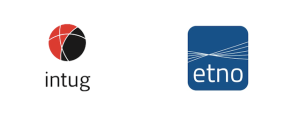 Chema Alonso
Chema Alonso
Chief Data Officer, Telefonica.
The Internet we know today has grown thanks to an open approach to technology, innovation or standards. On top of that the way it is governed, i.e. a multistakeholder model, based on a bottom-up and consensus decision making process has challenged the traditional models of the international relations.
The Internet has impacted on people’s life more profoundly as we could imagine a decade ago not only because of the ICT’s contribution to national GDPs, as calculated by the World Bank, or the general wealth generated by the digitalization of societies, but also because of the impact it has had on founding concepts of our living together such as privacy or security, or on daily behaviors.
The technological change is indeed altering social life, consumer’s demands and habits and even the terms of citizenship. Therefore, telecom operators are very active supporting an Open Internet convinced that this is the right path to follow in order to guarantee the sustainability of the current Internet model and the new wave of innovation that will come hand with hand the Internet of Everything.
Today European users are empowered by ubiquitous access to content, services and offers of their choice. Small and big businesses across Europe in their parts need to be underpinned by seamless and quality connectivity, in order to support their daily activities and create more growth opportunities.
In this regard, INTUG (the International Association of Business users of telecommunications) and ETNO (the Association representing Europe’s leading telecom operators) have called for the EU institutions to adopt user-friendly, innovation-enhancing and investment-conducive rules on the Open Internet. In a nutshell, we are in favour of an Open Internet and support its development through sustained levels of innovation, investment and a broad variety of offers.
These are the pillars of our call to the European Institutions:
Users need quality
As the usage of the internet goes mobile and ubiquitous, European users need reliable, stable and top quality connectivity. Today’s Internet, its reliability and its quality depend upon traffic management and the technologies embedded in the Internet’s infrastructure. We need this to remain possible if we are to empower satisfactory user experience.
Users need choice
Not all users are the same and they value different offers, tailored to their needs. Telecom operators need to be able to respond to the diverse requirements of their customers, big or small. This diversified demand is only met if operators are able to provide users with a wide variety of Internet access products and services.
Users need freedom to innovate
Digitalisation of formerly analogue industries – from transport and health to manufacturing – is contributing to create new growth opportunities for enterprises. In this field innovation is essential, whether related to new products or new business models. The development in areas such as connected cars or entertainment, for example, depends on the possibility of providing specialised services at guaranteed levels of quality.
Users need harmonised EU rules
A patchwork of national rules on net neutrality will simply not work. Europe needs to find a single, high-level approach to net neutrality, and ensure users across the Continent are confronted with a stable and harmonised set of rules. The creation of a successful and globally competitive single market will also depend on our ability to avoid national extremes and create a homogeneous regulatory environment. EU harmonisation is key in a global environment, as companies will benefit from consistency of rules across markets.








